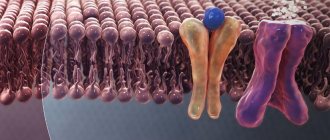Why do we overeat?
You can overeat due to an incorrect diet or inability to plan your day and meals.
Let's say you didn't eat enough during the day: you didn't have time to have breakfast in the morning, and at lunch you quickly had a snack on the run.
Then in the evening, after all your work, you will most likely want to eat properly, you will have time to cook something or the opportunity to go to a cafe. You will finally be able to relax, please yourself, plus you are more likely to be very hungry... and overeat. The way out of this situation is to plan your meals and take care to feed yourself. Buy groceries in advance, take food with you to work, get up early to have breakfast. Then by the evening you will not be too hungry and tired, and you will not want to overeat. Learn to take care of yourself and not forget about your needs.
Overeating is a frequent accompaniment of diets and strict proper nutrition.
If a person has to eat only the right and permitted food for a long time, then at some point the desire to eat something “forbidden” and harmful overpowers him, and the person overeats and a breakdown occurs.
Those who diet “professionally” even have a legal way to fail - a cheat meal (translated from English: cheat meal: cheat - “cheat”, meal - “meal”). This is such a planned “legalized” overeating for a person who eats right and exercises all week, and on Sunday has a “stomach holiday”. And this is also very harmful, as it can contribute to obesity and the development of type 2 diabetes.
The cause of overeating may be a lack of nutrients.
For example, a person eliminated animal protein from his diet and began to eat a lot. This happens because the body gives a signal to replenish the missing microelements that it previously received from meat or animal products, and now it has to get them somewhere else. The solution is to work on a balanced diet, carefully consider your diet to get all the necessary substances.
Abuse of unhealthy food (fast food, processed foods, sweets, snacks) inevitably leads to overeating.
Such food has low nutritional value: it is high in calories, but extremely poor in protein, healthy vitamins, fiber and complex carbohydrates, which make you feel full for a long time. Semi-finished products and fast food, for the most part, contain fast carbohydrates, sugar and animal fats, so soon after such a meal a feeling of hunger sets in, and you want to eat again.
Perhaps you overeat because you are in a hurry or eat in front of the TV, looking at the computer, phone or book, you do not have the time and opportunity to feel whether you are full or not.
So you can, by inertia, eat much more than you need. Therefore, try to eat slowly and remove all sources of information and irritants.
Eating habits are influenced by childhood experiences.
If your parents or grandmother forced you to eat every last crumb (“Until you eat the porridge, you won’t leave the table!”), you may have gotten used to ignoring satiety signals and eating more than your body needs. Or now you force yourself to finish everything that is on the plate, because “you can’t throw it away.” In this situation, mindfulness helps - observe your feelings while eating and track the moment of satiety. You can also put less food on your plate if you feel bad about throwing it away. Forming your new, “adult” eating habits is not easy, but without them, overeating cannot be avoided.
Eating behavior is influenced by the modern world and consumer culture: - food has become accessible, there is a lot of it, it is tasty, it lies on the supermarket counter, and you just need to reach it with your hand and put it in the basket.
Or you pass by a candy store and smell vanilla (sometimes such places are specially sprayed with appetite-stimulating odors to attract visitors). You drive home and see on the subway, in a magazine, on billboards photographs advertising delicious, beautiful food, and this triggers a desire. You may not be hungry, but the smells, images, and beautiful packaging of food in the supermarket will make you buy and eat something you didn’t even think about a minute ago. This is called externalizing overeating - overeating under the influence of external stimuli.
Frequent cases of overeating can be triggered by psychological reasons, this is the so-called “stress eating.” And this is also very harmful, as it can contribute to obesity and the development of type 2 diabetes1.
These are bulimia (an attack of overeating, followed by a “purging” - inducing vomiting, taking laxatives and diuretics, excessive exercise), compulsive overeating (when a person eats constantly and little by little, without feeling hungry) and binge eating (when in one meal a person eats a huge amount of food, which would be enough for a small company). Typically, such episodes of overeating occur in moments of stress, after a hard day at work or a quarrel with loved ones. Then food becomes an attempt to drown out your feelings: fear, anxiety, anger, rage, irritation, fatigue. If you suspect you have one of these eating disorders, it is best to consult a psychotherapist. Coping with psychological overeating on your own is difficult.
Digesting food is hard work for the body.
Digestion of food
It was tasty and interesting for you, but for the body the process of digesting food is hard work. Although food is crushed in the mouth, it can stick together into a dense lump in the stomach. Blood actively flows to the digestive organs, while other organs begin to experience a lack of oxygen.
Additionally, pressure in the small intestine increases, and the production of catecholamines - mediators and hormones that are involved in metabolism - is activated. This causes weakness and sometimes nausea.
A common occurrence is drowsiness after eating. This effect is associated with changes in blood glucose levels. If you have risen, we are happy, energy is in full swing and we want to live. If it has decreased, then we want to sleep or just lie idle.
Consequences of overeating
Regular overeating (several times a week) is harmful to health. It leads to weight gain, and extra pounds are a medical condition for a number of health problems: high cholesterol, diabetes, heart disease, hypertension, sleep apnea (stopping breathing during sleep), depression, kidney disease, arthritis.
Read more about the problems that can arise due to systematic overeating:
Heart problems
Overeating can lead to excess weight, which requires the heart to work hard to provide blood to the entire volume of organs and tissues. As a result, the heart muscle thickens and is forced to beat at an accelerated pace. Blood circulation and heart rhythm are disrupted, which can contribute to the development of hypertension, cardiac asthma, and an increased risk of heart attack.
"Fat" liver
Due to excess nutrition, the liver becomes oversaturated with fats and begins to get rid of them in favor of neighboring organs. This contributes to the development of gastrointestinal diseases such as gastritis, cholecystitis, colitis, pancreatitis. In addition, fat affects blood vessels and can lead to atherosclerosis.
Diabetes
The most common result of overnutrition. Regular overeating can lead to insulin resistance and type 2 diabetes.
Joint overload
Excess weight puts a significant load on the osteoarticular system, which is why joints can wear out faster, become deformed and become inflamed.
Hormonal disorders
Excess weight increases the risk of infertility in both men and women. It can cause menstrual irregularities and erectile dysfunction.
Sleep disturbance
Evening overeating can lead to insomnia, nightmares, as well as more serious consequences, such as sleep apnea (short-term cessation of breathing during sleep).
Weakness after eating
Weakness after eating can cause hypoglycemia.
Feeling bad after lunch or dinner? This can be a symptom of various pathological conditions. Causes of discomfort:
- Hypoglycemia – a sharp drop in blood glucose
- Hyperglycemia – elevated blood glucose levels
- Dumping syndrome
- Thyroid diseases
- Pathological processes in the gastrointestinal tract - gastritis, ulcers, enteritis
All these conditions require examination, treatment and follow-up by a doctor.
Eating disorder - symptoms and treatment
Social influences
In modern European culture, the ideal characteristics of a female figure are slimness and flexibility.
As a result, most young women in the United States and Europe go on some kind of diet, hoping to control their weight and improve their figure. It is not surprising that NB is most common among the female part of the population: it affects mainly Caucasian women of the middle and upper middle social class. They follow a diet because they want to conform to the ideology of their social class and the formal signs of a “high position” in society. It is curious that the opposite trend is demonstrated by the Latin American and African American part of the female population, where curvy figures combined with an athletic physique are the criterion of superiority and attractiveness.
It is possible that globalization and the mixing of cultural ideas about the figure will soon lead to some changes in the criteria of female attractiveness. Thus, along with advertising and promotion of slimness, there are almost opposite requests in plastic surgery (for example, increasing the size of the buttocks in women). The interpenetration of cultural ideas, the abundance of visual data, along with the simplification of the exchange of opinions on social networks, are likely to change the specificity and prevalence of eating disorders.[12][16][31]
Diet
The desire to be slim forces you to diet. Diet in this case is a strict, unhealthy restriction on the quantity and, often, quality of food consumed. Observations by specialists show that after periods of dietary restrictions, a kind of “rollback” occurs: a tendency to overeat arises. Often the change in phases of “diet - overeating” is caused by stress factors (conflicts, quarrels, infidelity, divorces, dismissals, etc.) Reliable studies show that young women who are already on a diet are more likely to develop eating disorder. In particular, one British study showed that schoolgirls who were on a diet were 8 times more likely to suffer from an eating disorder.
However, dieting is not a risk factor for overeating. As noted earlier, women suffering from this problem are much less likely to follow a diet.
Although there is a significant connection between dieting and the occurrence of the disorder, diet alone is clearly not enough to cause the disease. Obviously, the interaction of several factors is necessary. One study of risk factors found that eating disorders most often develop in women who are prone to obesity and mental disorders. In particular, emotionally unstable personality disorder is often accompanied by dysmorphophobia (excessive striving for ideality) and is a parameter that predicts eating disorder. There is an opinion that a strict diet is a variant of self-harmful behavior in this personality disorder. An “obsession” with food or the lack thereof distracts patients from experiencing severe “emotional pain,” and anxiety about the “imperfection” of one’s own figure plays approximately the same role.
How can dieting contribute to the development of eating disorder in women?
The practice of psychotherapy shows that such patients tend to exorbitantly overestimate social standards in relation to themselves and suffer from perfectionism. On a mental level, these unrealistic standards literally shut women out from meaningful interactions with other people. Getting objective feedback from others becomes almost impossible. Under such conditions, women who tend to diet easily lose control of their emotions. Next comes the all-or-nothing cognitive reaction. This phenomenon has been called the “abstinence-breaking effect.” Thanks to him, such patients completely lose control of themselves. As a result, they give up the ability to regulate their food intake and, at best, overeat.
Repeated diet violations and chaotic eating destroy the conditioned reflex connections of the body, which normally regulate normal nutrition. For example, abruptly stopping food intake due to the urgent intention of losing weight, without paying attention to the feeling of satiety, coupled with a lack of regularity in eating, can turn off conditioned satiety responses, which, in turn, will cause an episode of overeating.
Following a diet also leads to neurohumoral consequences. Thus, even a short-term diet can lead to serotonin dysfunction in the brain. Serotonin is an important neurotransmitter, regulator of mood and eating behavior. Its reduced level is associated with eating disorder (an interesting fact is that a lack of serotonin due to diet is observed only in women). As a result, a mutual reinforcement of two predisposing factors is formed: women are more likely to diet due to cultural pressure and at the same time become significantly vulnerable to the negative consequences of even a moderate diet due to the peculiarities of their biology.[5][18]
Family factors
Eating disorder occurs in close relatives of patients. The prevalence of ND among relatives of patients suffering from this disease is almost 4 times higher than among relatives of healthy people in the control group. AN is 12 times more common in relatives of patients with NB. This interdependence proves the existence of some common family predisposition. Parents of patients with eating disorder are significantly more likely to have obesity and alcohol abuse. It has been shown that the occurrence of ND is associated with excessive criticism from the parents of patients. More often this is expressed in the form of unflattering statements regarding girls’ weight, shape or eating habits.[5]
Genetic factors
The results of currently known twin studies are conflicting. Some reports show up to 30%, and sometimes up to 83%, of the influence of heredity on the formation of eating disorder. However, these results cannot be considered reliable due to the small size of the group of subjects and the complexity of describing the eating disorder phenotype. However, it is impossible to completely exclude the heredity of eating disorders. Therefore, in the interests of treating the disease, it should be considered that genetics is a factor whose influence should and can be minimized.[9]
Dumping syndrome
Poor condition after eating may be due to dumping syndrome.
This pathology develops after surgical interventions on the gastrointestinal tract. It consists of excessively rapid evacuation of food from the stomach to the intestines. Develops in 30% of cases as a complication after resection. The main symptoms of dumping syndrome develop either immediately after a meal or during a meal:
- Feeling of fullness in the stomach
- Weakness, decreased vision
- Pain, burning in the epigastrium
- Nausea, vomiting
- Headache
- Noise in the ears, sudden surges in pressure
- Increased gas formation
- In severe cases - up to the development of coma
The degree of severity depends on the time factor. The more time passes after the intervention, the less pronounced the symptoms become.










